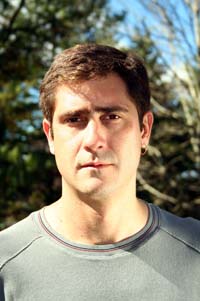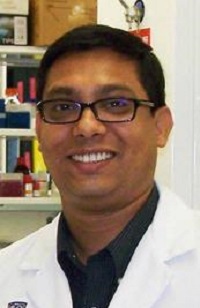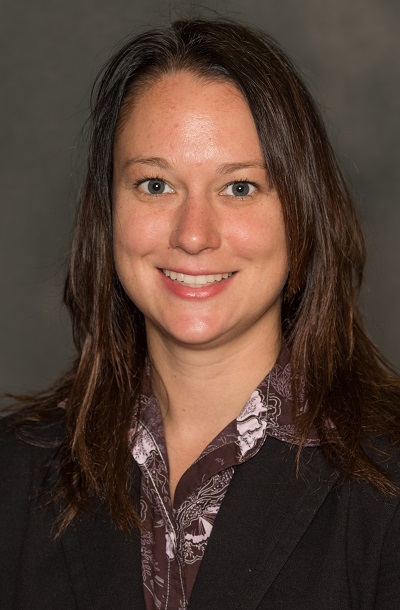Faculty & Staff Notes
A lot of new faces came into the Department of Animal Science in 2017. They join a faculty active in research, teaching, and outreach. Read in this article more about the people of the Department of Animal Science and their work.

New Faculty
The latter half of 2017 brought a number of new faculty to the Department of Animal Science.
- Tasia Taxis - Assistant Professor. Dr. Taxis finished post-doctoral training at the US Animal Disease Center in Ames Iowa. She focuses on scholarship in teaching as well as animal genetics.
- Roger Thomson - DVM, half-time fixed-term academic specialist. Dr. Thomson will focus on advanced dairy production and working with the Dairy Challenge program. He is an international consultant on milk quality and safety.
- Wen Huang - Assistant Professor, Global Impact Initiative (GII) - Animal Genetics and Genomics. Dr. Huang finished his post-doctoral work at North Carolina State University. His focus is on quantitative genetics and genomics, primarily in livestock animals.
- Aritro Sen - Assistant Professor, Global Impact Initiative - Reproductive and Developmental Sciences. Dr. comes to MSU from the University of Rochester. The main focus of his lab is to understand the role of steroids and hormones in health and disease.
- Chastin Leggett - Specialist - Teacher. Mr. Leggett will be the livestock industries certificate coordinator in Ag Tech and livestock judging team coach. He is a graduate of Oklahoma State University.
- Cedric Gondro - Professor. Senior scientist Global Impact Initiative - Animal Genetics and Genomics. Dr. Gondro come to MSU from the University of New England, New South Wales, Australia. He focuses on the development of computational methods for optimization of biological problems; statistical and functional analysis methods for high throughput genomic data (microarrays, SNPs, sequence); estimation of population genetics parameters using genome-wide data; and simulation of biological systems; cattle genetics.
- Arnulfo Pineda Baird - Research Associate (Adam Lock)
- Pabitra Pal - Research Associate (Aritro Sen)
Retiring Faculty:
- Dr. Dave Beede, Meadows Chair in Dairy Cattle Management and Production, retired January 1, 2018.
New Staff:
- Jolene Roth (Research Assistant II, compliance)
- Cort Thompson (Research Assistant, Yuan Wang’s Lab)
- Aninta Biswas (Research Assistant II, Aritro Sen’s Lab)
- Andrea Meade (Dairy Farm Manager)
- Trent Cole, BCRB (Laborer Agricultural I)
- Paige Bittner (Assistant Instructor, Horse Barn)
- Lacey Quail (Sheep Farm Manager; starting July 1, 2018)
Current ANS Faculty/Staff Searches:
- Livestock Youth Programs Educator - search underway by MSUE.
- Extension Poultry specialist (extension/teaching) – 27 applications – reviewed; three interviewed.
- Companion Animal Biology and Management – search process underway.
- Environmental Stewardship – an invited stakeholder group from government, industry and MSU to vision needs and future issues in the area of livestock environmental stewardship.
Faculty Introductions
The new tenure-track faculty members in the Department of Animal Science have been busy setting up and staffing their laboratories. Each of them took a little time out of their busy schedules to introduce themselves and their research programs.
Cedric Gondro
I recently moved from tropical Australia to somewhat less tropical Michigan to join the animal genetics group. I have a rather eclectic background in genetics, computer science and statistics and this is reflected in my research interests: computational and statistical methods for analysis of high-throughput genomic data applied to livestock production.
These are exciting times for genetics and genomics; just 10 years ago we could hardly envision that we would be able to work with tens or hundreds of thousands of animals at full sequence level across hundreds of phenotypes – these are billions of data points, an ocean of information at our fingertips. How to make sense out of this overwhelming quantity of data, what we can learn about genetics, biology and the evolutionary history of our domestic animals is unprecedented – exciting times indeed. And of course, ultimately, all of this must revert into value to society; more productive animals, reduced environmental footprints, better product quality.
The latter is my pet topic, as a beef quality aficionado, I am fortunate to be able to put so much effort into something that I really care about. I see great opportunities and synergies for work in beef quality here at MSU, it is one of the world’s leading Ag universities and the well-established links with industry provide a seamless pathway from basic research to industry adoption. I look forward to my career here at MSU and I am enjoying the very literal 90-degree swing – in temperature.
Wen Huang
I grew up in a small town in southeast China and studied biology in college before coming to the United States for graduate school. I received my M.S. in biochemistry at Case Western Reserve University in Cleveland, Ohio and went on to receive my Ph.D. in dairy science at the University of Wisconsin-Madison. After a postdoctoral training at North Carolina State University, I joined the faculty at Michigan State University in July of 2017.
I am a geneticist who studies the origin and maintenance of genetic diversity in populations of livestock animals, including cattle, pigs and others. Such diversity is essential for artificial selection and evolution to work. My research program designs genetic experiments and employs statistics and computer science to understand the relationship between the diversity among the DNA of animals and the diversity in their economically important
phenotypes. Ultimately, such genetic information and statistical methodologies will enable us to breed better animals.
My teaching program will include courses to better prepare our students with quantitative analytical skills, such as those in animal breeding and quantitative genetics. And my outreach program will naturally relies on my expertise in genetics to reach out and engage our community in understanding and supporting animal science.
Aritro Sen
Dr. Aritro Sen recently joined the Reproductive and Developmental Sciences Program (RDSP) in the Department of Animal Science, MSU. Previously he held a faculty position in the Department of Medicine, Division of Endocrinology and Metabolism at University of Rochester School of Medicine and Dentistry, Rochester, NY.
Dr. Sen received his undergraduate degree in Microbiology from Bangalore University followed by Master degree in Biochemistry from University of Calcutta, India. He did his PhD in the Biology, Cell and Molecular Biology program at West Virginia University and two post-doctoral fellowships from MSU with Dr. George W. Smith and University of Texas Southwestern Medical Center, Dallas, with Dr. Stephen R Hammes in Reproductive Endocrinology and Molecular Endocrinology, respectively.
Dr. Sen is interested in steroid hormone signaling, and his laboratory studies steroid hormone actions in the ovary under normal and pathophysiological conditions like polycystic ovarian syndrome (PCOS) and premature ovarian failure (POF), two major causes of infertility in today’s women. Dr. Sen’s research program is also focused towards understanding how the first 9 months in the uterus shape one’s health in adult life. His research is focused towards determining how conditions like chronic adrenal hyperplasia and gestational diabetes change the developmental course of the fetus resulting in lasting harmful outcomes that often end in adult pathologies like infertility and metabolic disorders.
His research is funded by the National Institute of Health (NIH), Michigan State University, MSU AgBioResearch, Ferring Pharmaceuticals and the Foundation for Reproductive Medicine. Dr. Sen is the recipient of the Endocrine Society’s Early Investigator Award and currently serves in the editorial board of Endocrinology. He also serves as a reviewer for numerous scientific journals and NIH grant review panels. Dr. Sen lives in Okemos with his wife, who is a Biochemist and who also works in the Department of Animal Sciences at MSU, and his 5-year-old daughter.
Tasia Taxis
Tasia M. Taxis, assistant professor, joined the Department of Animal Science in August 2017. Her interests and position will focus on discipline-based education or scholarship of teaching and learning as well as genetics discipline research projects. Currently, Tasia has been networking and learning about the education research being conducted within the department as well as across campus to determine the niche she will fulfill to assist the Department of Animal Science to grow as educators in the classroom, answer questions, and provide a representation of MSU Animal Science in this growing area of research.
Her discipline research focuses on cattle genetics. She looks forward to defining her program within this area, with a particular focus on microbiome and/or sncRNA profiles associated with production attributes in beef cattle. Ultimately, Tasia is interested in defining the relationship between education and discipline research by focusing on student retention in animal science. Tasia will be teaching genetics (ANS 314) and an animal survey course (ANS 210; launched Fall 2019).
Tasia received her bachelor’s degree in animal science from Purdue University. At Purdue she was exposed to gene expression research in callipgye lambs and was forever enamored by genetic research. She completed her master’s and doctoral degree from University of Missouri in 2011 and 2015, respectively. Before joining MSU, Tasia spent 1.5 years at the ARS/USDA in Ames, Iowa, in the bovine respiratory disease research unit.
In her free time, Tasia enjoys being outdoors and particularly enjoys hunting and fishing. As she settles into the Lansing area, she hopes to eventually raise a few cattle, garden, and enjoy living in the country with her partner, Grant, and their three dogs. After work on any given day, you might find Tasia finishing up a quilt, crochet, or craft project, gardening, playing games or spending quality time with friends, or (of course) preparing for the upcoming hunting season.
Faculty and Staff Highlighted
Dr. Janice Siegford, Associate Professor of Animal Behavior and Animal Welfare, was one of five regional recipients of the 2017 Excellence in College and University Teaching Awards for Food and Agricultural Sciences. Awards were presented November 12 at the 130th Annual Meeting of the Association of Public and Land-grant Universities (APLU) in Washington, DC.
Dr. Chen Chen: “Genetic Advance for Male Birth Control,” MSU Today, October 10, 2017.
Dr. Jason Rowntree and Dr. George Smith: WKAR covered the 2nd Annual MSU Agriculture Innovation Day, August 24, at the Lake City Research and Extension Center (LCREC). Visit the article to link to interviews with Dr. George Smith, Associate Dean for Research in CANR and Associate Director of MSU AgBioResearch, Douglas Carmichael, Manager of LCREC, Dr. Jason Rowntree, Associate Professor of animal science, and Dr. Lisa Tiemann, Assistant Professor of plant, soil and microbial sciences.
Dr. Brian Nielsen: “Short-, Long-Term Effects of Vibrating Platforms Studied," by Erica Larson in The Horse, August 23, 2017.
Dr. Paul Coussens and Meredith Frie (PhD student in the Cell and Molecular Biology PhD program): “A Hidden Threat To Herd Health: Evidence For The Damaging Effects Of Bovine Leukaemia Virus,” Scientia, August 17, 2017.
Dr. Keith Latham and Ashley L. Severance (PhD student): Ashley L. Severance and her PhD mentor, Dr. Keith Latham, published a paper that was chosen for the image of the week by the American Journal of Physiology-Cell Physiology.
Dr. Adam Lock: “Building a Firm Foundation Through Research,” Michigan Milk Producers Association, August 3, 2017.
Dr. Jason Rowntree: “Developing Michigan's Local, Pasture-Based, Beef Production System,” Newsletter of the NCR-SARE Program, Summer 2017, Issue 36.
Interested in learning about dairy cattle breeds? Melissa Elischer, Extension Educator, Dairy Youth Programs, MSU Extension, brings you the history of seven breeds in articles on Holstein, Jersey, Ayrshire, Guernsey, Brown Swiss, Milking Shorthorn, and Red and White cattle. Start at Holstein and follow the links to the other breeds. Next, try the Dairy Animal series by Melissa as well. Sheep lead off the list of dairy animals.
Tracy Rich was named December 2017 Staffer of the Month in CANR.



 Print
Print Email
Email









